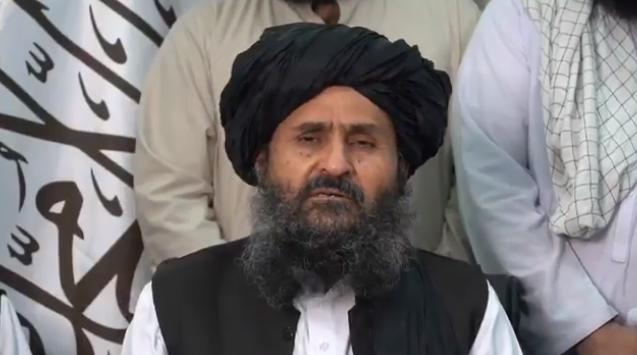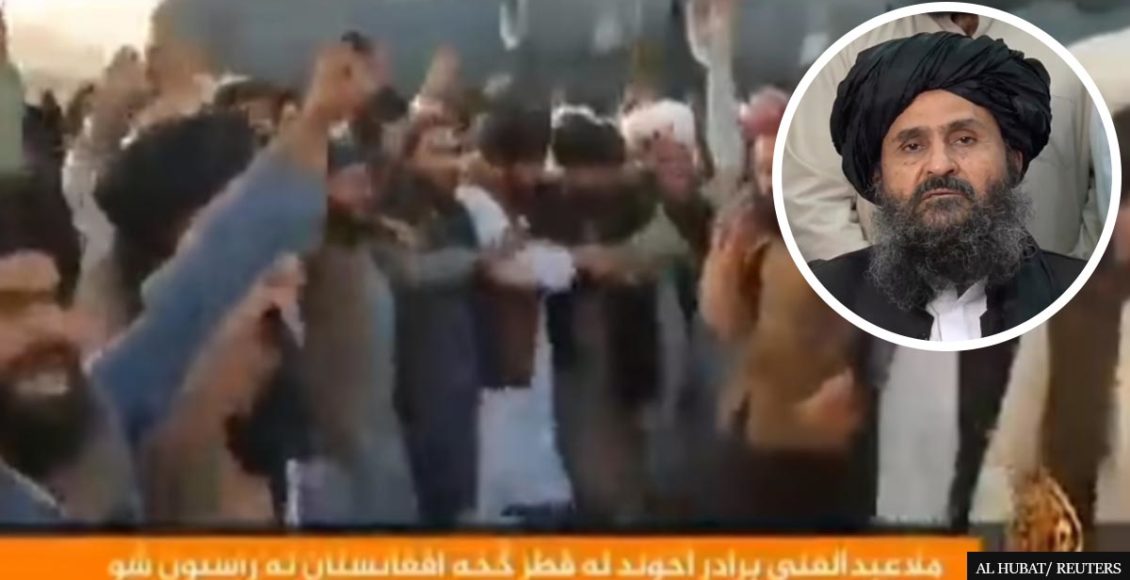Taliban co-founder Mullah Abdul Ghani Baradar received a hero’s welcome in Afghanistan after the organization took over.
- Taliban co-founder Mullah Abdul Ghani Baradar was welcomed in Afghanistan after 20 years of exile.
- Baradar is now tipped to become the country’s next leader.
- Although the Taliban have claimed they will enforce “strong Islamic values,” they insist their government will respect women’s rights.
On Tuesday, August 17, Mullah Abdul Ghani Baradar, also known as Baradar the Butcher, arrived at Afghanistan’s province of Kandahar, the birthplace of the Taliban movement, after a 20-year-long exile. As Daily Mail reports, the head of the Taliban’s political office is now tipped to become the country’s next leader.

After the Taliban took over Afghanistan’s capital city of Kabul on Sunday, Baradar, 53, was finally able to return to the country. Dr.M.Naeem, a spokesman for the organization, recently uploaded a video of Baradar’s flight landing, as well as a motorcade of 4x4s bearing their flag. The footage was released by the Taliban-affiliated Al Hijrat TV station.
— Dr.M.Naeem (@IeaOffice) August 17, 2021
The spokesman wrote:
“This afternoon, a high-level delegation from the Islamic Emirate of Afghanistan headed by Mullah Baradar Akhund left Qatar and arrived in our beloved country this afternoon and landed at Kandahar Airport.”
Baradar was Afghanistan’s deputy defense minister during the 9/11 attack.
Although the Taliban leader went into hiding after the 2001 U.S. invasion, he remained an active authority for the organization.
Mullah Abdul Ghani #Baradar,
presumed new President of #Afghanistan w then Sec of State #MikePompeo, Qatar Sept 2020.In video released by #Taliban Sunday (from Qatar).
Taliban fighters in Presidential Palace #Kabul, Sunday. pic.twitter.com/SvJNAxISld
— Norman Hermant (@NormanHermant) August 16, 2021
Three years ago, following a request made by the U.S. government, Baradar was freed from jail in Pakistan. Additionally, last year, he posed for pictures with Donald Trump’s Secretary of State Mike Pompeo to sign a peace deal in Doha.
However, the agreement is now irrelevant following the shocking turn of events in Afghanistan.
Although the Taliban have pledged they would enforce Islamic law, they have claimed that Afghan women will not be persecuted.
According to Zabihullah Mujahid, a spokesman, “there is a huge difference between us and the Taliban of 20 years ago.” The spokesman referred to the dark times when women in Afghanistan were beaten in the street or publicly executed, denied work, healthcare, and education, and barred from leaving home without a male chaperone.
What is more, the organization now insists girls will have access to education and women will be allowed to enroll in universities.
Nevertheless, Afghan-American protesters that gathered outside the White House earlier this week, fear for the lives of the girls left to face the consequences of the Taliban ruling. One of them commented:
“Our girls. The girls who are under 20 don’t know what life is like under Taliban. Their lives are all destroyed. They’re all destroyed.”
Demonstrators protest the US military pullout of Afghanistan as the Taliban moved into Kabul, at the White House in Washington. TB/NYT pic.twitter.com/ncDJf6rFZM
— Tom Brenner (@tombrennerphoto) August 16, 2021
“We are committed to the rights of women under the system of Sharia,” Muhajid declared.
The spokesman ensured:
“They [Women] are going to be working shoulder to shoulder with us. We would like to assure the international community that there will be no discrimination.”
However, following Muhajid’s statement that Afghanistan will now “have a strong Islamic government” with “strong Islamic values,” a Kabul University student admitted she fears for her future. Speaking to Daily Mail, Rukhsar, 22, said:
“I am disheartened by the recent situation and advance of the Taliban because I have been sitting at home and worrying about my future. I have dreamed of doing a lot of things in my life but now everything has been stopped suddenly. Everything has changed in a flash of light.
I don’t know about my future now and the international community have turned their faces away from us. This is our right to go to university and to do work in the offices.”



